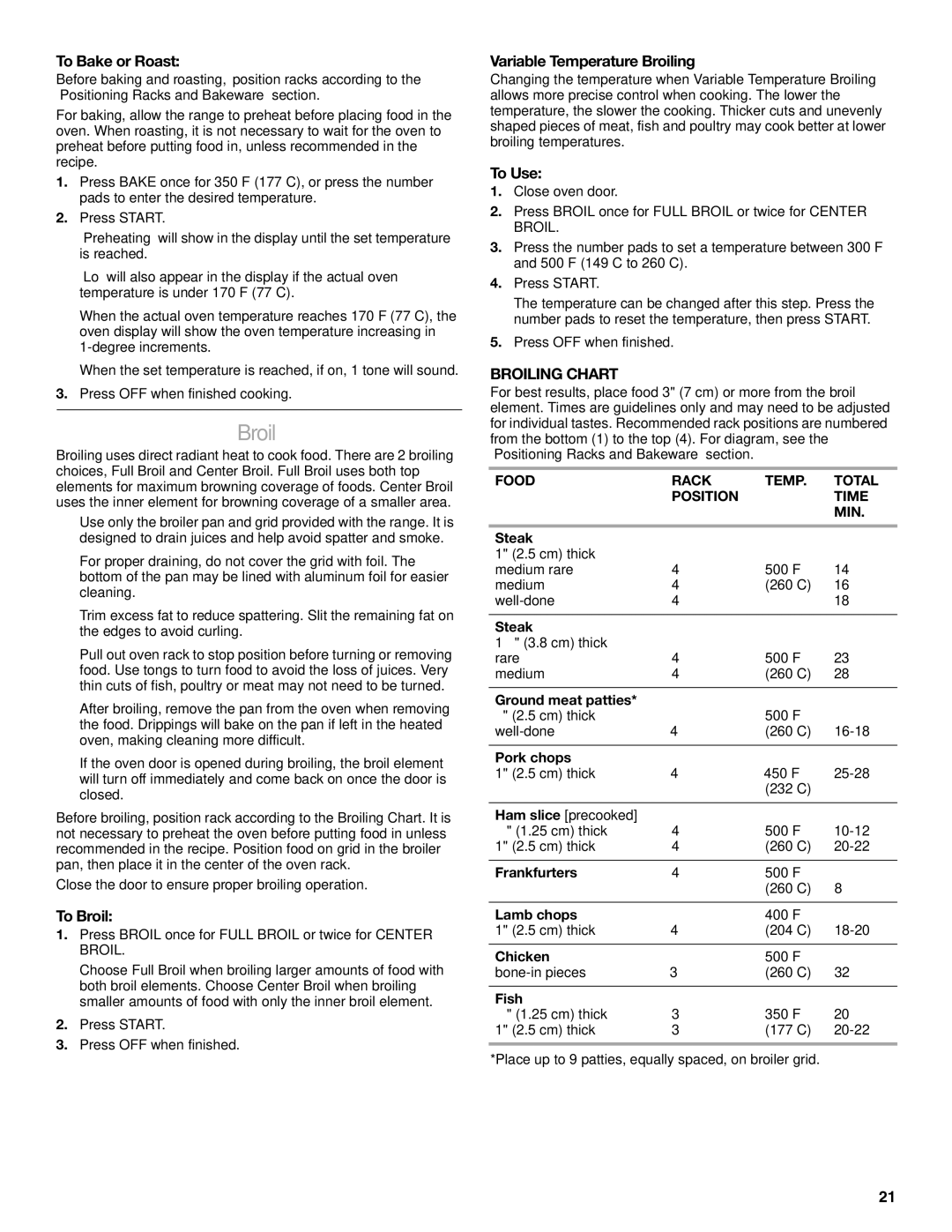KESK901, YKERS807, KESS907, YKESS907, KESS908 specifications
KitchenAid has earned a reputation for excellence in kitchen appliances, and the products in the KESS and YKESS series are no exception. The KitchenAid YKESS908, KESS908, YKESS907, KESS907, and YKERS807 stand out for their sophisticated design and impressive functionalities, making them a favorite among both amateur cooks and professional chefs.One of the standout features of the KESS and YKESS series is their powerful triple-stacked burners. These burners provide an extensive range of heat, allowing for precise control whether you're simmering sauces or searing meats. The burner layout is designed for optimal cooking efficiency, ensuring even heat distribution across pots and pans.
All models in this series are equipped with a unique convection oven technology, which circulates hot air throughout the oven cavity. This feature ensures that baked goods rise evenly, and meats cook thoroughly, prominently improving cooking outcomes. The ovens also include temperature probe options, allowing users to monitor the internal temperature of their dishes without opening the oven door, which helps maintain consistent cooking temperatures.
Another characteristic of the KESS and YKESS appliances is their sleek design. With a polished stainless steel finish and professional-grade knobs and controls, these kitchen ranges add a touch of elegance to any culinary space. The ergonomic layout of controls makes them easily accessible, enhancing the cooking experience.
The series also features an intuitive LCD display and smart controls, facilitating easy navigation through cooking settings and timers. Some models support Wi-Fi connectivity, allowing users to remotely monitor and control their cooking from a smartphone app. This integration offers convenience, ensuring that you never have to worry about overcooking.
The self-cleaning options in the ovens, which offer both traditional and steam cleaning methods, make maintenance simple and hassle-free. This is a particularly attractive feature for those who want to spend more time cooking and less time on cleanup.
In conclusion, the KitchenAid YKESS908, KESS908, YKESS907, KESS907, and YKERS807 represent innovation in kitchen appliance technology. With powerful burners, advanced convection cooking, elegant designs, smart features, and easy maintenance, these models cater to the needs of modern cooking enthusiasts, making them a lasting investment for any kitchen. Whether you're looking to elevate your culinary skills or simplify cooking tasks, these KitchenAid ranges offer the perfect blend of performance and aesthetics.

